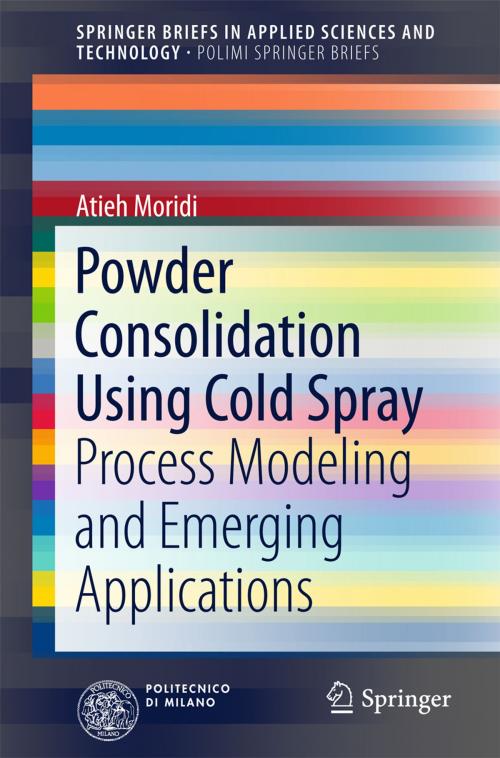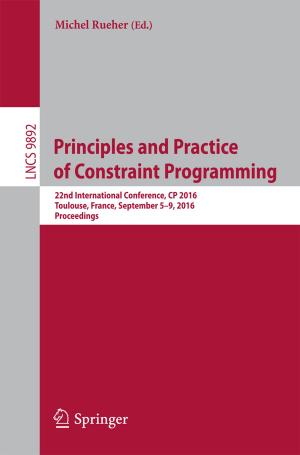Powder Consolidation Using Cold Spray
Process Modeling and Emerging Applications
Nonfiction, Science & Nature, Technology, Material Science, Manufacturing| Author: | Atieh Moridi | ISBN: | 9783319299624 |
| Publisher: | Springer International Publishing | Publication: | November 10, 2016 |
| Imprint: | Springer | Language: | English |
| Author: | Atieh Moridi |
| ISBN: | 9783319299624 |
| Publisher: | Springer International Publishing |
| Publication: | November 10, 2016 |
| Imprint: | Springer |
| Language: | English |
This book first presents different approaches to modeling of the cold spray process with the aim of extending current understanding of its fundamental principles and then describes emerging applications of cold spray. In the coverage of modeling, careful attention is devoted to the assessment of critical and erosion velocities. In order to reveal the phenomenological characteristics of interface bonding, severe, localized plastic deformation and material jet formation are studied. Detailed consideration is also given to the effect of macroscopic defects such as interparticle boundaries and subsequent splat boundary cracking on the mechanical behavior of cold spray coatings. The discussion of applications focuses in particular on the repair of damaged parts and additive manufacturing in various disciplines from aerospace to biomedical engineering. Key aspects include a systematic study of defect shape and the ability of cold spray to fill the defect, examination of the fatigue behavior of coatings for structural applications, and a novel working window at subcritical conditions to obtain porous structures. This book is exceptional in scope, and its review of finite element modelling at different length scales sheds light on future design and process improvement in emerging applications such as structural repair, metal additive manufacturing and metal foam design.
This book first presents different approaches to modeling of the cold spray process with the aim of extending current understanding of its fundamental principles and then describes emerging applications of cold spray. In the coverage of modeling, careful attention is devoted to the assessment of critical and erosion velocities. In order to reveal the phenomenological characteristics of interface bonding, severe, localized plastic deformation and material jet formation are studied. Detailed consideration is also given to the effect of macroscopic defects such as interparticle boundaries and subsequent splat boundary cracking on the mechanical behavior of cold spray coatings. The discussion of applications focuses in particular on the repair of damaged parts and additive manufacturing in various disciplines from aerospace to biomedical engineering. Key aspects include a systematic study of defect shape and the ability of cold spray to fill the defect, examination of the fatigue behavior of coatings for structural applications, and a novel working window at subcritical conditions to obtain porous structures. This book is exceptional in scope, and its review of finite element modelling at different length scales sheds light on future design and process improvement in emerging applications such as structural repair, metal additive manufacturing and metal foam design.















